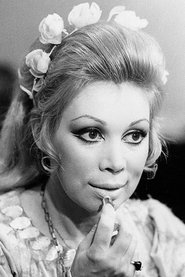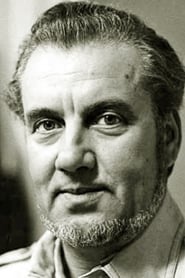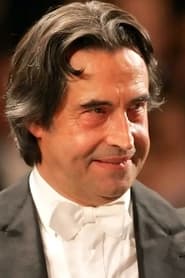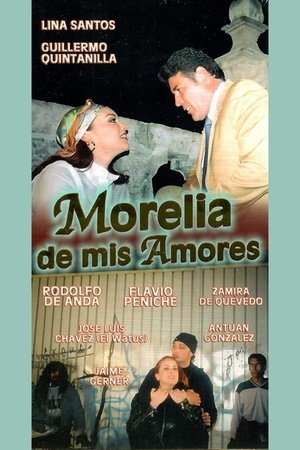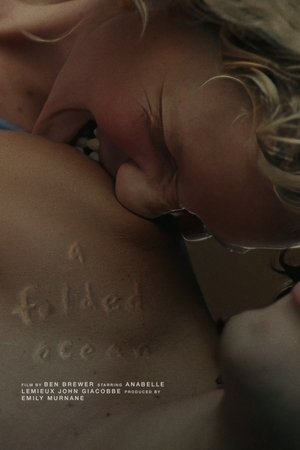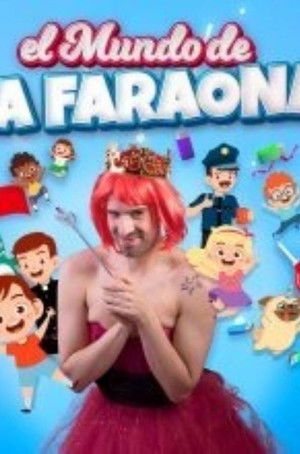

Verdi Ernani(1982)
SINGERS IN THEIR WONDERFUL PRIME
It truly is an historic performance. Domingo looking and singing like a god pouring out golden tones; Renato Bruson sounds, like the sublime Verdian Baritone that he was at that time; Nicolai Ghiaurov proves again that he was one of the greatest "Verdi Basses"; Mirella Freni shows that there was more to her than just being Mimi and Susannah-in fact I can remember reading that at the time of the premiere of this production that there were fist fights (not unusual in La Scala's gallery) between Mirella's many fans--between those fans that just wanting her to continue singing the light lyric repertoire that they were use to her singing and those that felt she should and could sing the lyric-spinto repertoire which, of course, she proved that,indeed, she could (She's still singing more than twenty years later). This performance captures some of the best Verdi singers of the time doing dear ole wonderful Giuseppi proud.
Movie: Verdi Ernani
Top 6 Billed Cast

Verdi Ernani
HomePage
Overview
It truly is an historic performance. Domingo looking and singing like a god pouring out golden tones; Renato Bruson sounds, like the sublime Verdian Baritone that he was at that time; Nicolai Ghiaurov proves again that he was one of the greatest "Verdi Basses"; Mirella Freni shows that there was more to her than just being Mimi and Susannah-in fact I can remember reading that at the time of the premiere of this production that there were fist fights (not unusual in La Scala's gallery) between Mirella's many fans--between those fans that just wanting her to continue singing the light lyric repertoire that they were use to her singing and those that felt she should and could sing the lyric-spinto repertoire which, of course, she proved that,indeed, she could (She's still singing more than twenty years later). This performance captures some of the best Verdi singers of the time doing dear ole wonderful Giuseppi proud.
Release Date
1982-07-28
Average
8
Rating:
4.0 startsTagline
SINGERS IN THEIR WONDERFUL PRIME
Genres
Languages:
ItalianoKeywords
Recommendations Movies
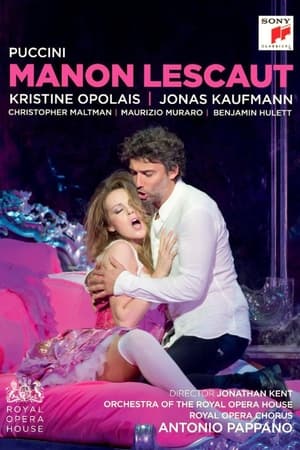 10.0
10.0Manon Lescaut(it)
Manon Lescaut's production was updated and it worked. Highly professional production with two of the best performances I've ever witnessed in any opera. By the end of the third act I was crying and by the end of the fourth act I could not stop the tears. These two can not only sing up a storm they act one as well. This is the best Manon Lescaut I've ever seen and hope the upcoming one at the Met is as good. It truly was thrilling. Kaufmann and Opolais were unbelievably fantastic and the orchestra was superb. Pappano is the kind of maestro you want to sing for as he coaches as in the old days of maestros like Levine, etc. This is highly recommended as a keeper!
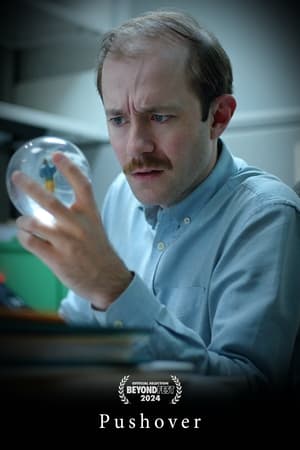 8.3
8.3Pushover(en)
A man's life is upended by increasingly threatening phone calls demanding he leave a review for a paperweight purchased online.
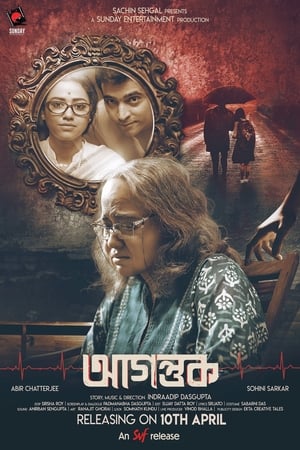 0.0
0.0Agantuk(bn)
An old lady, Shobharani Basu, is found dead in her apartment. A self-appointed private investigator calls it a murder. What could be the cause of her death?
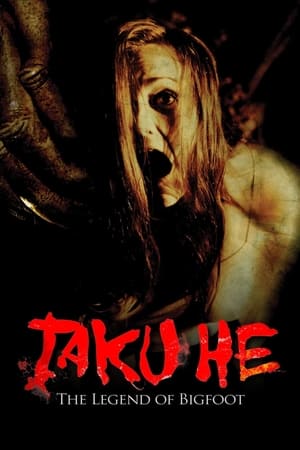 10.0
10.0Taku-He(en)
When a film company scouting locations for their next feature discover the footprint of a large creature, it sets them on a path of death and destruction. They decide to turn a camping weekend into a film documentary on the beast which has terrified the area for years. Camped out in the heart of the creature's home, the weekend turns into a fight for survival. Will any make it out alive?
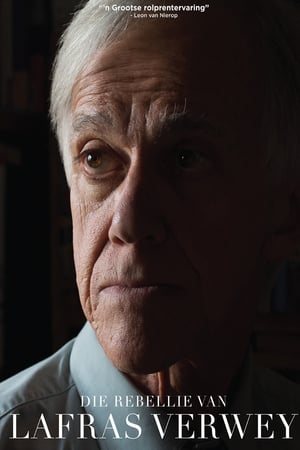 6.5
6.5The Rebellion of Lafras Verwey(en)
Lafras Verwey (58) has worked as a clerk in the Civil Service in Pretoria for thirty years. By day he sorts files and whiles away the mundane hours writing grandiose propaganda speeches and drilling imaginary platoons in the washroom, but unbeknownst to his colleagues he is also a clandestine parcel courier for a secret organization that recruited his services to complete their covert mission.
 4.0
4.0Bestseller(en)
Chicago literary agent, Anne Harper, vacations to a remote cabin in the Upper Peninsula of Michigan. While there, a disgruntled writer is waiting in the shadows to seek his revenge.
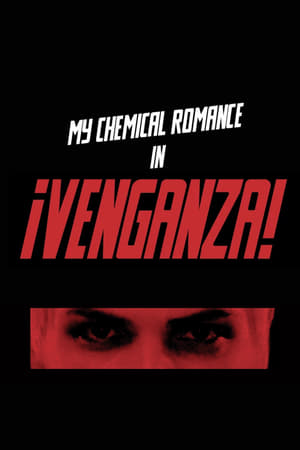 10.0
10.0My Chemical Romance - ¡Venganza!(en)
¡Venganza! is a video album released by rock band My Chemical Romance. It is the second part of the concert in Mexico City, Mexico on October 7, 2007, and a follow-up to the previous DVD The Black Parade Is Dead!. These videos are stored on a bullet-shaped USB drive, along with photos from the show. The flash drive is only available with a Revenge-style vest. Some photos of the Venganza show appear in the booklet for The Black Parade is Dead!. 1. "I'm Not Okay (I Promise)" 2. "Cemetery Drive" 3. "Thank You for the Venom" 4. "The Jetset Life Is Gonna Kill You" 5. "The Ghost of You" 6. "It's Not a Fashion Statement, It's a Fucking Deathwish" 7. "Give 'Em Hell, Kid" 8. "You Know What They Do to Guys Like Us in Prison" 9. "Helena"
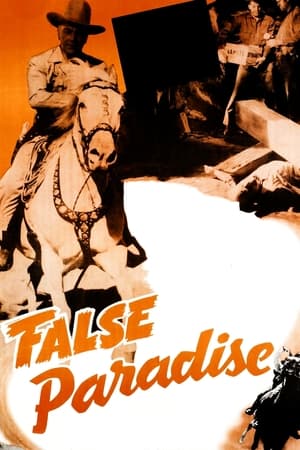 6.0
6.0False Paradise(en)
A banker is trying to cheat people out of their silver-rich land. Hoppy learns that the banker is in league with an outlaw gang.
 10.0
10.0Sunsets Don't Last Forever(en)
Through the summer breeze and the isolation. Time is still time, and that can't be changed. sunsets-don-t-l
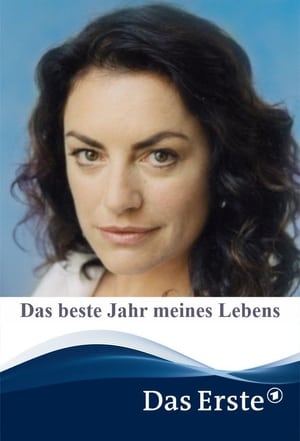 3.7
3.7Das Beste Jahr meines Lebens(de)
Her husband Niklas' loan fraud plunges housewife Laura Vandenberg into disaster. While Niklas is behind bars and the company is being wound up, Laura has to give up her house and move to a dreary high-rise estate with her two children. But with the support of her neighbor Ziggy, Laura soon finds a job in an Italian dive bar. Thanks to her sophisticated cooking skills, which she acquired as a perfectly organized housewife, Laura gets the shop going. Finally, Niklas is released on probation - but then Laura finds out that her husband has not only cheated on the bank.
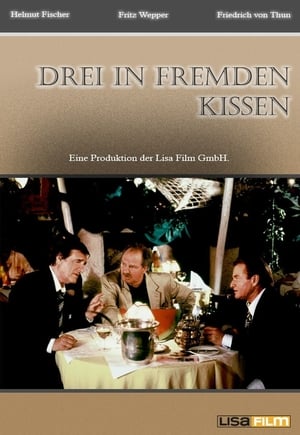 7.0
7.0Drei in fremden Kissen(de)
Once again, the hotel run by brothers Ludwig and Otto König is not fully booked. This changes when Genevieve Büglmeier, a rich sausage and meat manufacturer, turns up at the hotel and wants to book the four-poster room and the entire floor for herself. But the four-poster room has been booked for Otto and Ludwig's sister, Nane. What Nane doesn't realize is that Genevieve has arrived accompanied by Herbert Faltemeier, from whom Nane has just been divorced...
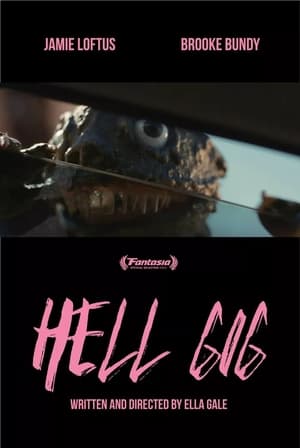 3.7
3.7Hell Gig(en)
After a comedian is infected by a demon who eats anyone she envies, her relationship with her best friend is threatened.
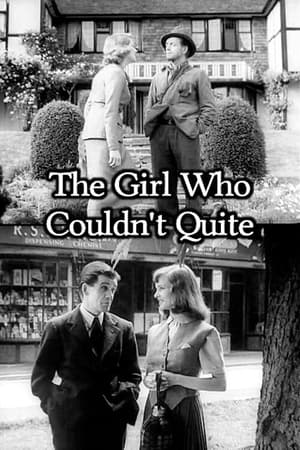 6.0
6.0The Girl Who Couldn't Quite(en)
A tramp is invited to stay with the family of a teenage girl who has been unable to smile since childhood in a bid to cure her.
The Taking(en)
Some old houses have secrets. Dark secrets that bleed into the very soul of its foundations. For young Isobel and her Grandmother, they discover through the course of one eerie night, that some secrets weren't meant to be unraveled. Isobel, whose seems to have an uncanny bond with whatever spirits inhabit their old mansion, learns that even the very place they call home will do anything to tear their love apart. Some secrets weren't meant to be revealed. Not by little girls. So sweet... so innocent... Little girls don't even know when or where to run. That's what they're counting on. They're coming...and they're taking...
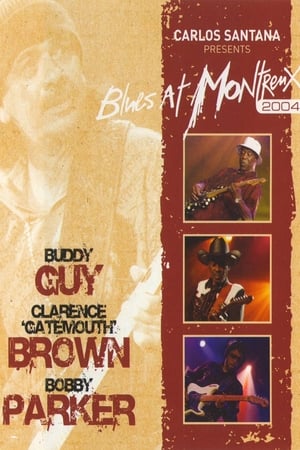 6.9
6.9Carlos Santana Presents: Blues at Montreux 2004(en)
July 12, 2004 was a very special night at the Montreux Festival for any blues fan. With Carlos Santana as musical director (and special guest guitarist), three musical legends took to the stage; each one delivering a full concert set packed with some of the finest blues guitar playing you'll ever hear. Bobby Parker, Clarence "Gatemouth" Brown and Buddy Guy are all headline acts in their own right so it was a real coup to get them on one line-up. Throw in the guest appearances by Carlos Santana and Chic maestro Nile Rodgers and blues heaven is complete!
Similar Movies
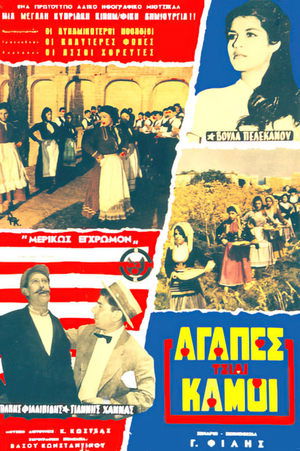 0.0
0.0Love Affairs and Heartbreaks(el)
This first film of Cyprus' first director, Giorgios Filis, depicts music and dance customs in the form and style of a folk opera, with traditional Cypriot dances and songs. The film consists of a folkloric inventory based on the folk culture of Cyprus, as well as on similar ritual happenings. The narration and dialogue are entirely in the Cypriot dialect and are characterized by a rhetorical and poetic mood.
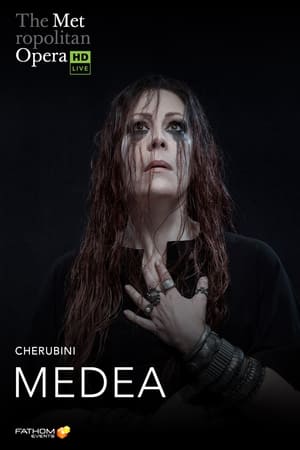 0.0
0.0The Metropolitan Opera: Medea(it)
Having triumphed at the Met in some of the repertory’s fiercest soprano roles, Sondra Radvanovsky stars as the mythic sorceress who will stop at nothing in her quest for vengeance. Joining Radvanovsky in the Met-premiere production of Cherubini’s rarely performed masterpiece is tenor Matthew Polenzani as Medea’s Argonaut husband, Giasone; soprano Janai Brugger as her rival for his love, Glauce; bass Michele Pertusi as Glauce’s father, Creonte, the King of Corinth; and mezzo-soprano Ekaterina Gubanova as Medea’s confidante, Neris. Carlo Rizzi conducts.
 6.6
6.6Farinelli(fr)
The life and career of Italian opera singer Farinelli, considered one of the greatest castrato singers of all time.
 7.1
7.1The Phantom of the Opera(en)
The deformed Phantom who haunts the Paris Opera House causes murder and mayhem in an attempt to make the woman he loves a star.
 6.0
6.0Fidelio(de)
Beethoven’s only opera is a masterpiece, an uplifting story of risk and triumph. In this new production, conducted by Antonio Pappano, Jonas Kaufmann plays the political prisoner Florestan, and Lise Davidsen his wife Leonore (disguised as ‘Fidelio’) who daringly sets out to rescue him. Set in strong counterpoint are the ingredients of domestic intrigue, determined love and the cruelty of an oppressive regime. The music is transcendent throughout and includes the famous Act I Quartet, the Prisoners’ Chorus and Florestan’s impassioned Act II cry in the darkness and vision of hope. Tobias Kratzer’s new staging brings together the dark reality of the French Revolutionary ‘Terror’ and our own time to illuminate Fidelio’s inspiring message of shared humanity.
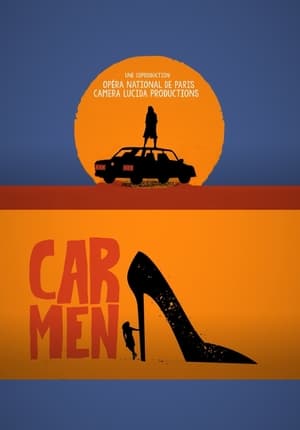 0.0
0.0Carmen - Opéra National de Paris(fr)
The first words uttered by Carmen mark one of the greatest entrances in the history of opera and express all that need be said: “Love is a rebellious bird that no one can tame…” With a devilish sway of the hips and a hint of Andalusian flair, the beautiful cigar-maker sets her sights on a soldier: Don José. Fate will do the rest.
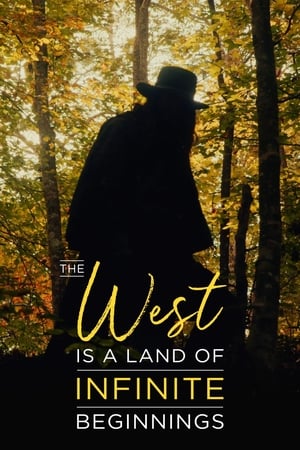 0.0
0.0The West is a Land of Infinite Beginnings(en)
Alone in the woods, a young man is pursued by a horrifying specter and by visions of his deceased sisters. A meditation on the precarious uncertainty of the American Dream and the role that uncontrollable forces play in our lives, The West is a Land of Infinite Beginnings is inspired by a harrowing scene from the opera Proving Up, by composer Missy Mazzoli and librettist Royce Vavrek.
 7.0
7.0Cavalleria rusticana(it)
Franco Zeffirelli directs these two legendary La Scala productions telling tragic tales of jealousy. Mascagni's Cavalleria Rusticana features performances by Elena Obraztsova, Plácido Domingo, and Renato Bruson. Leoncavallo's I Pagliacci stars Teresa Stratas, Plácido Domingo, and Juan Pons. Both are conducted by George Pretre. This production of Pagliacci earned director Franco Zeffirelli the coveted Emmy as Best Director in the category of Classical Music Programming.
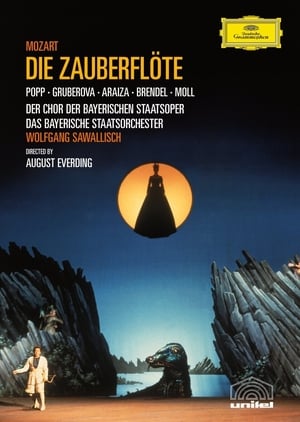 0.0
0.0The Magic Flute(de)
The Queen of the Night enlists a handsome prince named Tamino to rescue her beautiful kidnapped daughter, Princess Pamina. Aided by the lovelorn bird hunter Papageno and a magical flute that holds the power to change the hearts of men, young Tamino embarks on a quest for true love, leading to the evil Sarastro's temple where Pamina is held captive.
 6.5
6.5La Traviata(en)
La traviata (Italian: [la traˈviaːta], "The Fallen Woman"[1][2]) is an opera in three acts by Giuseppe Verdi set to an Italian libretto by Francesco Maria Piave. It is based on La dame aux Camélias (1852), a play adapted from the novel by Alexandre Dumas, fils. The opera was originally entitled Violetta, after the main character. It was first performed on 6 March 1853 at the La Fenice opera house in Venice. Piave and Verdi wanted to follow Dumas in giving the opera a contemporary setting, but the authorities at La Fenice insisted that it be set in the past, "c. 1700". It was not until the 1880s that the composer and librettist's original wishes were carried out and "realistic" productions were staged.[3]
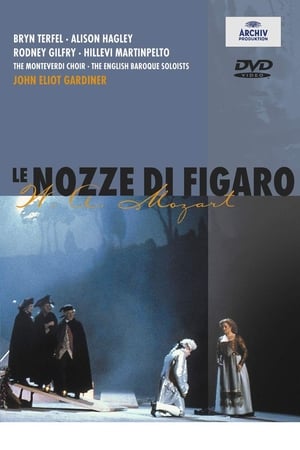 10.0
10.0The Marriage of Figaro(it)
This is a good video of "Figaro", but there are a couple of better ones available. The Bohm and the Pappano are better still due to the female members of the casts. The reason for buying this one is the "Figaro", Bryn Terfel. No one can top him today in that role. John Eliot Gardiner also stands out. Many of us have voiced their opinion that If the Metropolitan Opera would release it's 1998 version, that would be the one to get.
 0.0
0.0Puccini: Manon Lescaut(it)
All the throbbing eroticism—and ultimate heartbreak—of Puccini’s youthful score is unleashed by James Levine and his top-flight cast. Plácido Domingo is Des Grieux, the handsome, headstrong young aristocrat who falls head over heels for the enticing, impetuous Manon Lescaut (Renata Scotto). Manon returns his love, but her obsession with luxury ruins them both. Gian Carlo Menotti’s opulent production, with sets and costumes by Desmond Heeley, superbly captures the colorful world of 18th century France.
 6.8
6.8Così fan tutte(it)
Who loves whom in Così fan tutte, Mozart’s and Da Ponte’s cruelly comic reflection on desire, fidelity and betrayal? Or have the confusions to which the main characters subject one another ensured that in spite of the heartfelt love duets and superficially fleetfooted comedy nothing will work any longer and that a sense of emotional erosion has replaced true feelings? Così fan tutte is a timeless work full of questions that affect us all. The Academy Award-winning director Michael Haneke once said that he was merely being precise and did not want to distort reality. In only his second opera production after Don Giovanni in 2006, he presents what ARTE described as a “disillusioned vision of love in an ice-cold, realistic interpretation”.
 7.0
7.0Aida - Arena di Verona(it)
The grand scale and magnificent acoustics of the Roman arena in Verona are ideally suited to the pageantry of Verdi's Egyptian opera, presented here in a staging that is true to the original 1913 production, framed by obelisks and sphinxes and filled with chorus and dancers. Chinese soprano Hui He has won international acclaim for her portrayal of the eponymous slave girl whose forbidden love for the war hero Radamés (Marco Berti, the experienced Verdi tenor) brings death to them both.
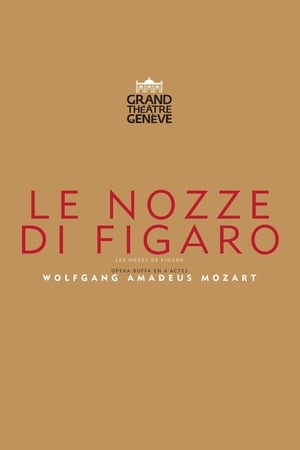 0.0
0.0The Marriage Of Figaro - Grand Théâtre de Genève(it)
The production bears the imprint of the conductor, Marko Letonja, and the director, Tobias Richter, whose understanding is ideal: both breathe a troupe spirit - specific to comedy - into this heterogeneous cast, which brings together young and old. Both give as much importance to recitatives as to arias and ensembles.
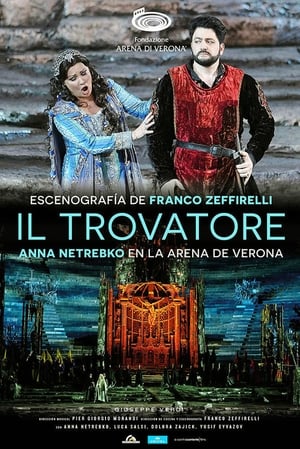 0.0
0.0Arena di Verona: Il Trovatore(it)
It's an event that draws many thousands of music lovers to one of the most beautiful cities in the world every summer: the opera season at the ancient Arena di Verona. The 2,000-year-old roman amphiteatre with its gigantic stage dimensions is one of the largest and best preserved Roman construction of its kind, and with over 22,000 seats it is undoubtedly one of the most spectacular open-air venues of the world! The revered master of opera Franco Zeffirelli, who died shortly before the premiere of Il Trovatore, created a legendary scenery with groups of giant sized armoured knights, a fortress turning into a luminous cathedral, an enormous choir, horses, breathtaking fights: “his perhaps best arena production” (Opernglas). It brings Anna Netrebko to the Arena of Verona where she is giving her much-anticipated debut in one of Giuseppe Verdi’s most popular operas.
 8.0
8.0Amadeus(en)
Disciplined Italian composer Antonio Salieri becomes consumed by jealousy and resentment towards the hedonistic and remarkably talented young Viennese composer Wolfgang Amadeus Mozart.
Lady Macbeth of Mtsensk(ru)
A young woman, married to a wealthy man, but miserably lonely; trapped within a world ruled with an iron fist. Katerina is driven by a lust for life and for love. Her husband, though, is impotent; her father-in-law a tyrant. No wonder, then, that she longs to free herself from this yoke. When Sergei starts work on the family estate, she sees in him a chance for salvation. However, their subsequent affair marks the beginning of a descent into crime.
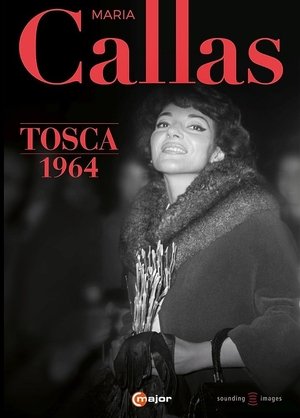 0.0
0.0Maria Callas Sings Tosca, Act II(en)
At the beginning of 1964, the music world experiences something completely unexpected. Maria Callas returns to the opera stage as the prima donna. Her “Tosca” at the Royal Opera House becomes a sensation. Maria Callas wants to show everyone once again that she deserves the title of “prima donna assoluta.” On the condition that star director Franco Zeffirelli take over the direction, the exceptional singer agrees to sing the role of Tosca. The BBC recorded the 2nd act of the opera for television. It is one of the most dramatic acts in opera history: in order to free the painter Cavaradossi from the hands of torturers, Tosca ends up murdering the police chief Scarpia. The film footage is one of the rare opportunities to see Maria Callas in an opera performance and to experience her highly emotional performance art and vocal abilities...

